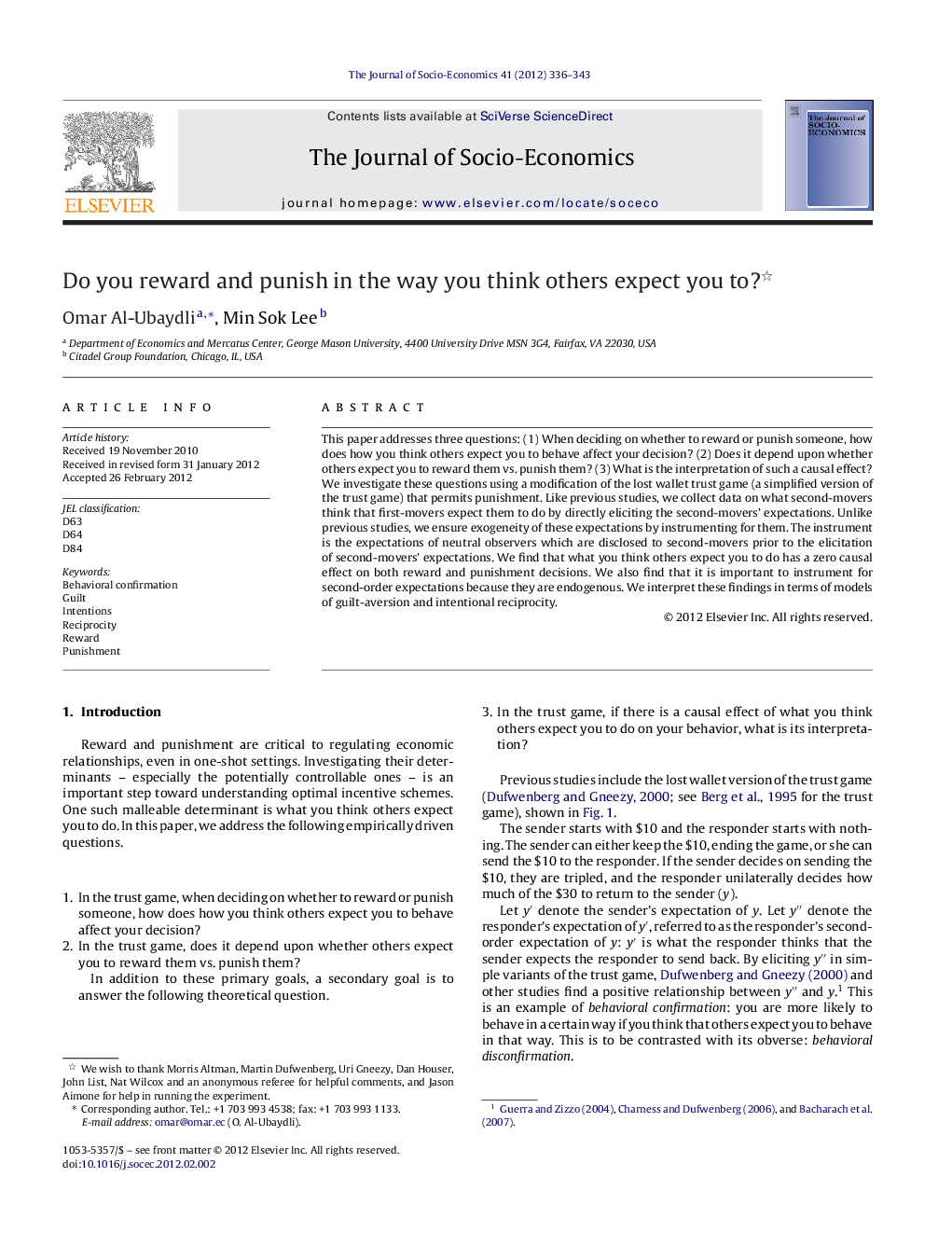| Article ID | Journal | Published Year | Pages | File Type |
|---|---|---|---|---|
| 970768 | The Journal of Socio-Economics | 2012 | 8 Pages |
This paper addresses three questions: (1) When deciding on whether to reward or punish someone, how does how you think others expect you to behave affect your decision? (2) Does it depend upon whether others expect you to reward them vs. punish them? (3) What is the interpretation of such a causal effect? We investigate these questions using a modification of the lost wallet trust game (a simplified version of the trust game) that permits punishment. Like previous studies, we collect data on what second-movers think that first-movers expect them to do by directly eliciting the second-movers’ expectations. Unlike previous studies, we ensure exogeneity of these expectations by instrumenting for them. The instrument is the expectations of neutral observers which are disclosed to second-movers prior to the elicitation of second-movers’ expectations. We find that what you think others expect you to do has a zero causal effect on both reward and punishment decisions. We also find that it is important to instrument for second-order expectations because they are endogenous. We interpret these findings in terms of models of guilt-aversion and intentional reciprocity.
► Analyze a new determinant of punishment (in addition to reward). ► Reanalzye existing data in a novel way to find novel results. ► Collect new data that confirms novel results. ► Provide novel interpretation of new and existing data.
